17.11.2025
Digital ID Forum 2025 – Day 2 Recap
Day two of the Digital ID Forum 2025 opened with a strong emphasis on the future of Europe’s trust services market and digital identity.
Day two of the Digital ID Forum 2025 opened with a strong emphasis on the future of Europe’s trust services market and digital identity. After an intense first day (read more about it here), participants returned with fresh energy to explore how trust, security and interoperability should be built in an increasingly digital world. The atmosphere remained exceptional — focused, substantive and open to the exchange of perspectives.
If you haven’t read the recap of Day One yet, you can find it here.
UEID – Evolution or Revolution? The Future of the Trust Services Market
The day began with a high-profile debate moderated by András Barsi (Aruba), featuring Anna Koźlik (COI), Artur Miękina (Asseco Data Systems), Václav Mladěnka (Monet+), Steve Pannifer (Consult Hyperion) and Grzegorz Wójcik (Autenti). Panelists explored whether eIDAS 2.0 and the EUDI Wallet would bring evolution or genuine revolution to the market.
They agreed that the upcoming system will fundamentally change how trust is established online, enabling cross-border services, digital signing and seamless attribute sharing. Interoperability, standards and user education were highlighted as the key conditions for success.
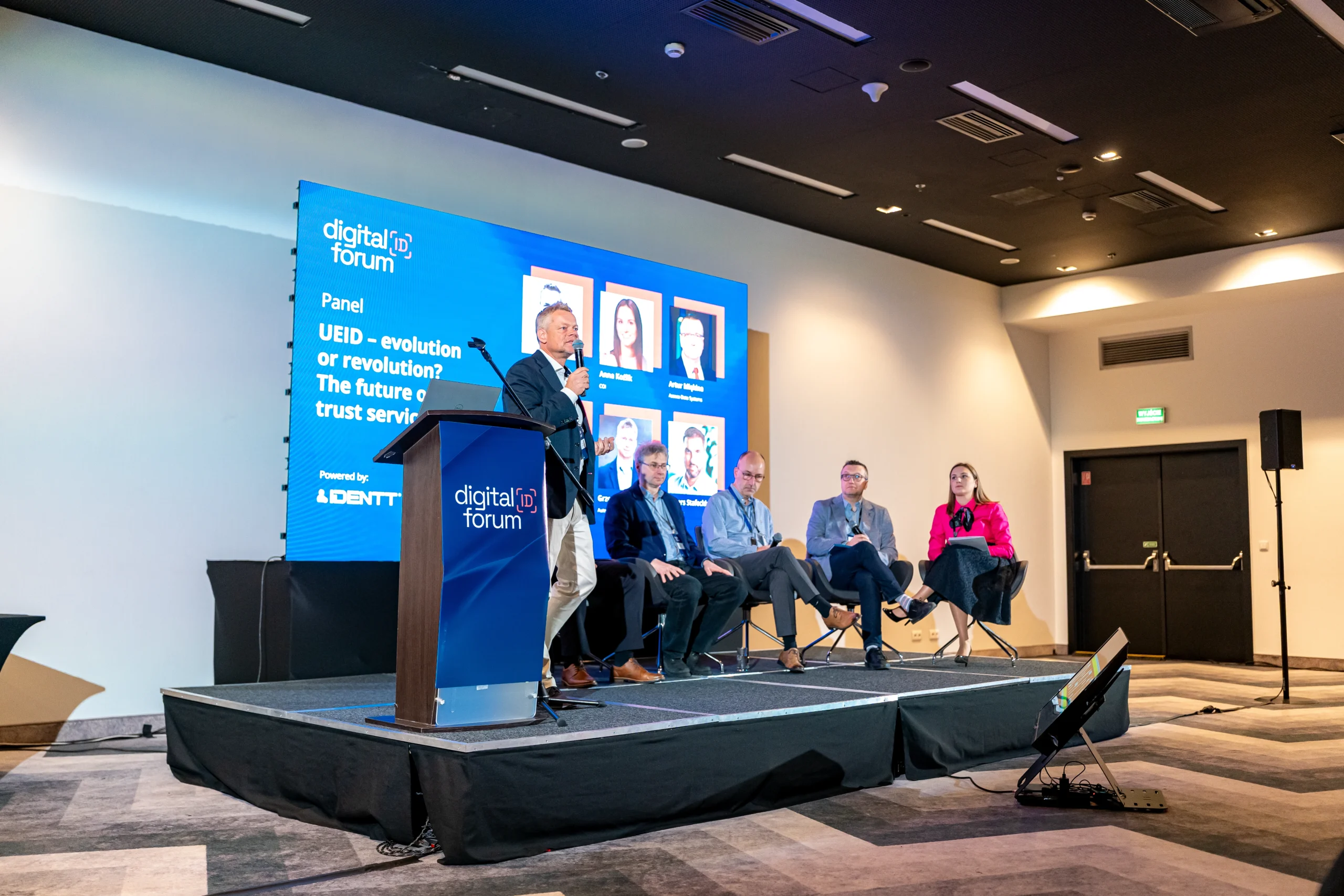
Steve Pannifer: The Impact of the EUDI Wallet on Payments
Steve Pannifer outlined how the EUDI Wallet will transform payments by simplifying AML and KYC procedures, reducing fraud risk and enabling instant user verification. He explained that identity will become a new infrastructural pillar of Europe’s financial ecosystem.
Pannifer also pointed to challenges such as data privacy, access control and the need for interoperable standards across the EU.
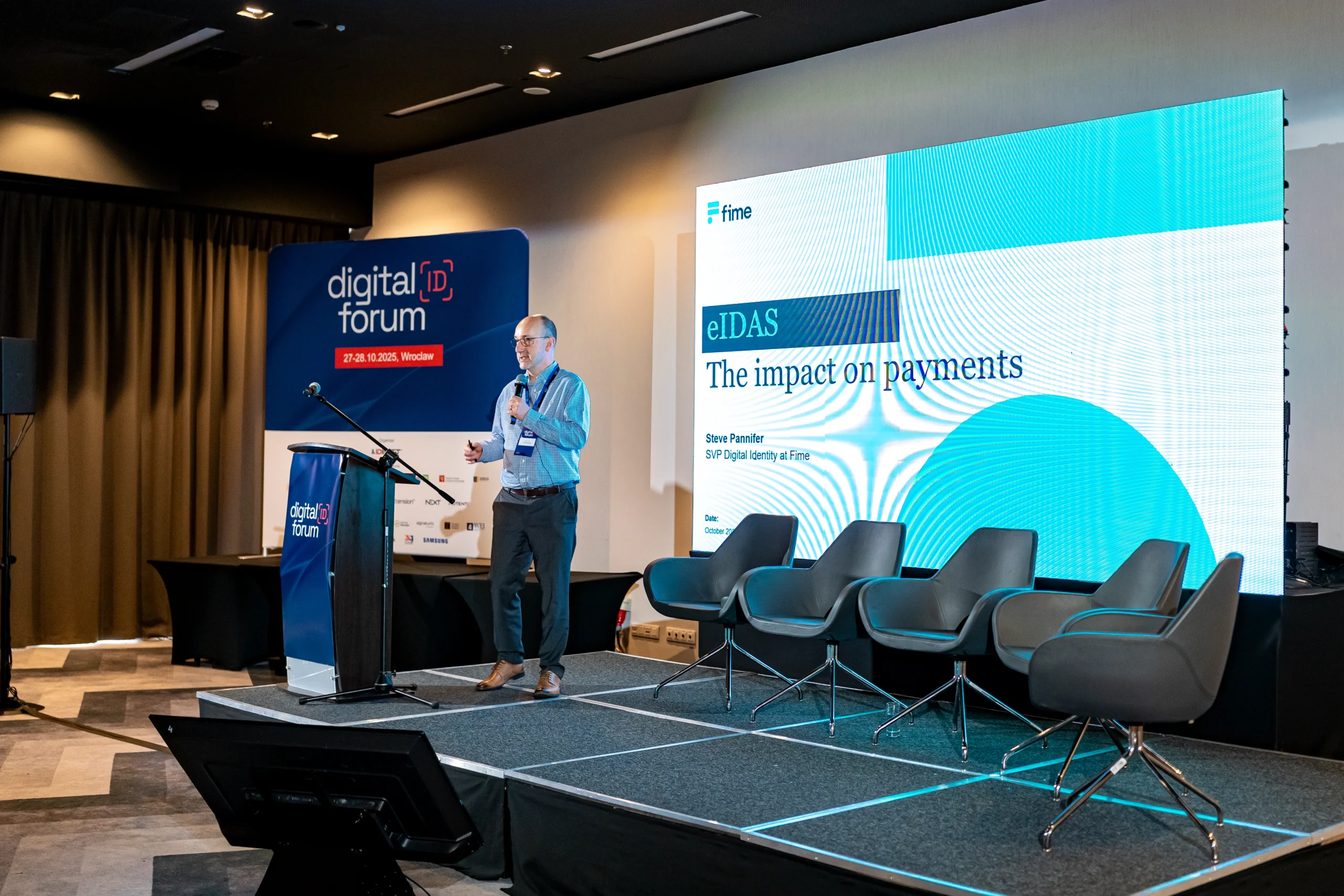
Edgars Stafeckis: Integrated Trust in Digital Transformation
Edgars Stafeckis (TrustLynx) introduced the concept of “integrated trust,” stressing that legal, technological and organisational layers must work together. In the age of AI, trust must be embedded directly into system architecture.
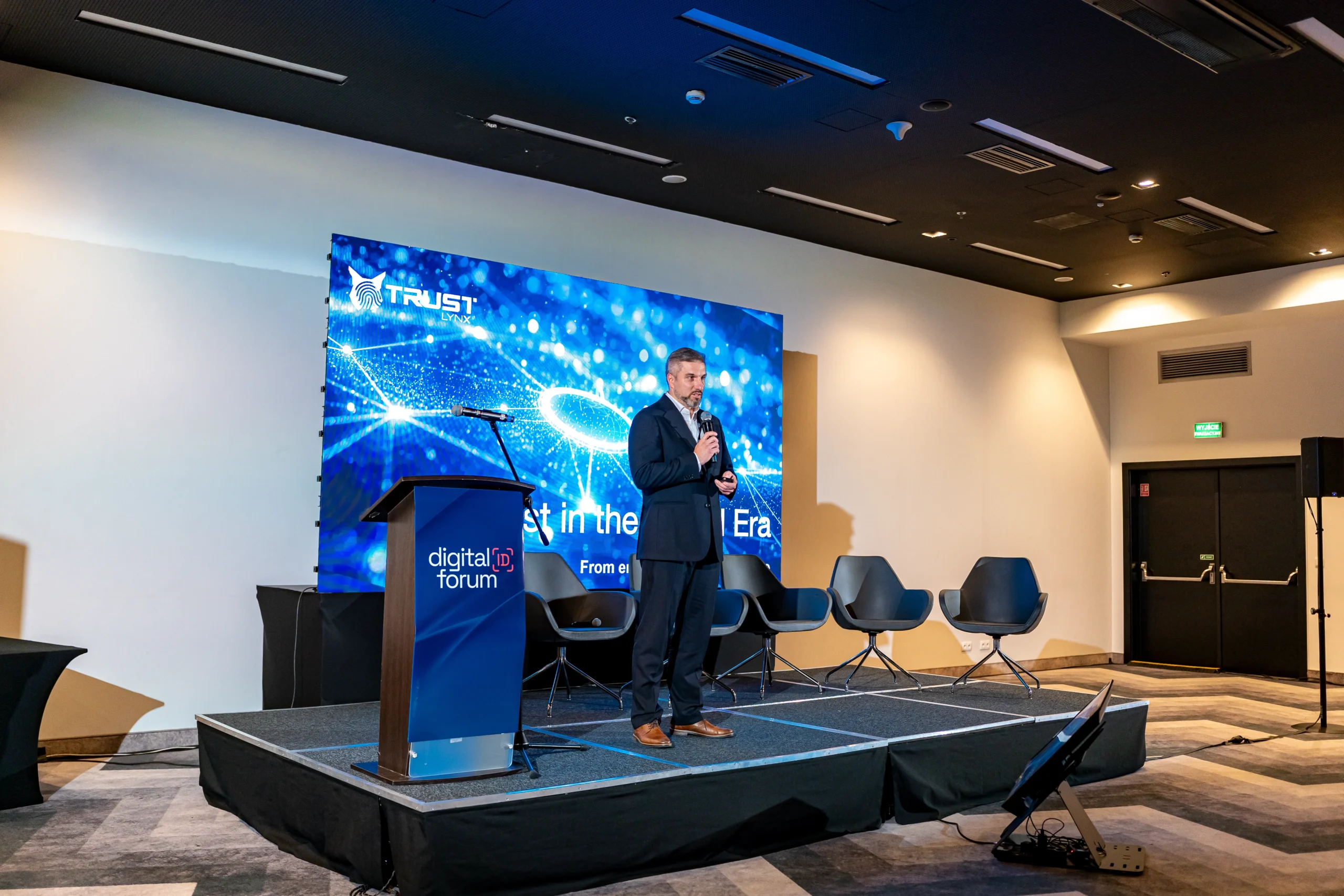
Mateusz Stafiniak: Monitoring the Cyber Threat Landscape
Mateusz Stafiniak (Apius Technologies) illustrated how cybercriminals weaponise identity data and why organisations must rely on proactive, continuous monitoring. Collaboration and rapid information sharing significantly increase resilience to emerging threats.
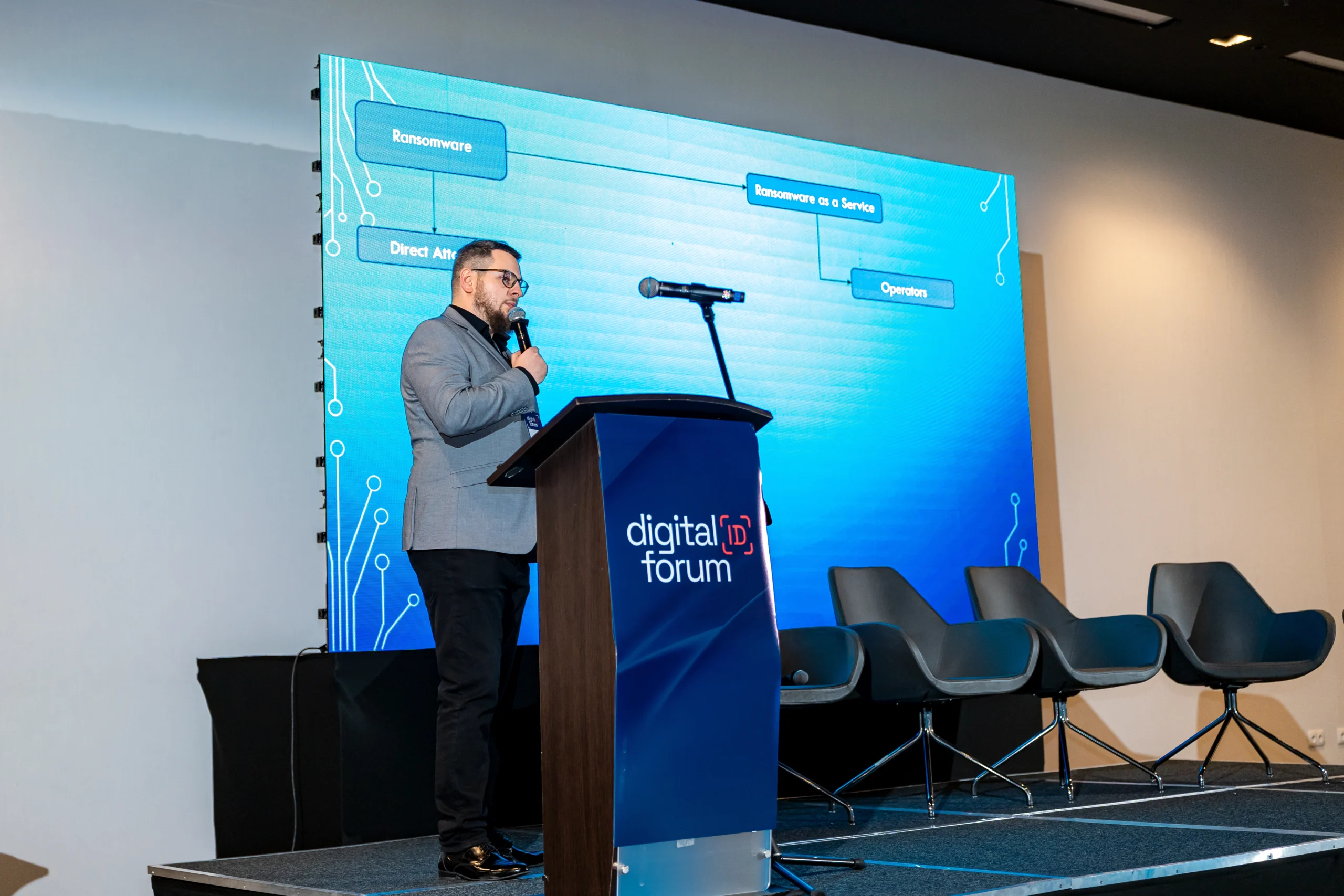
Prof. Marek Rocki: The Digital Skills Gap
Prof. Marek Rocki (SGH) emphasised the growing importance of digital competencies and the urgent need for educational programs that address real market needs. Digital literacy must include understanding risk, privacy and the impact of data-driven technologies.
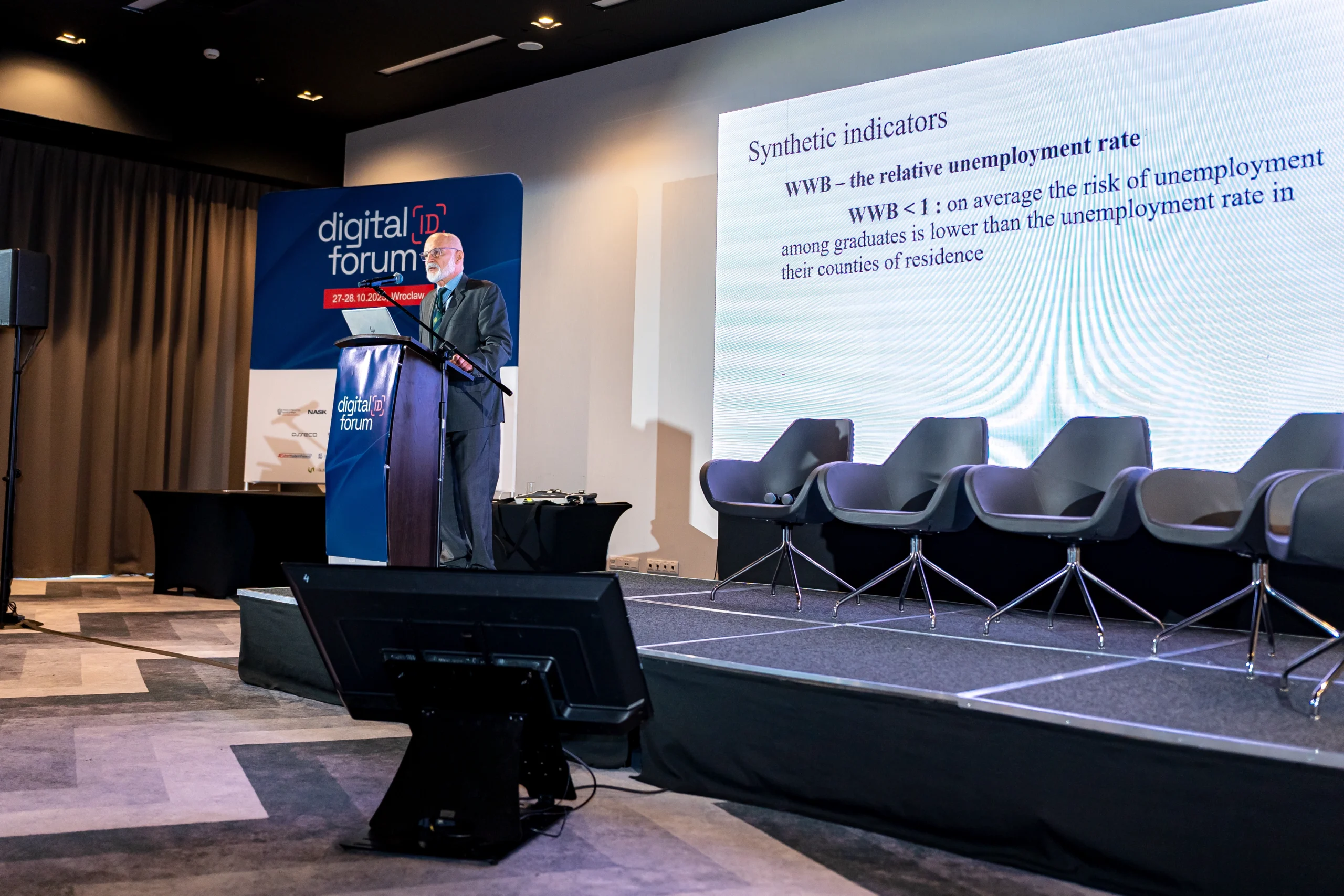
Piotr Sulik: Preventing SMS Fraud Proactively
Piotr Sulik (NEXT MOBILE) presented real fraud scenarios and showed how proactive monitoring and pattern analysis can block malicious SMS messages before they reach users.
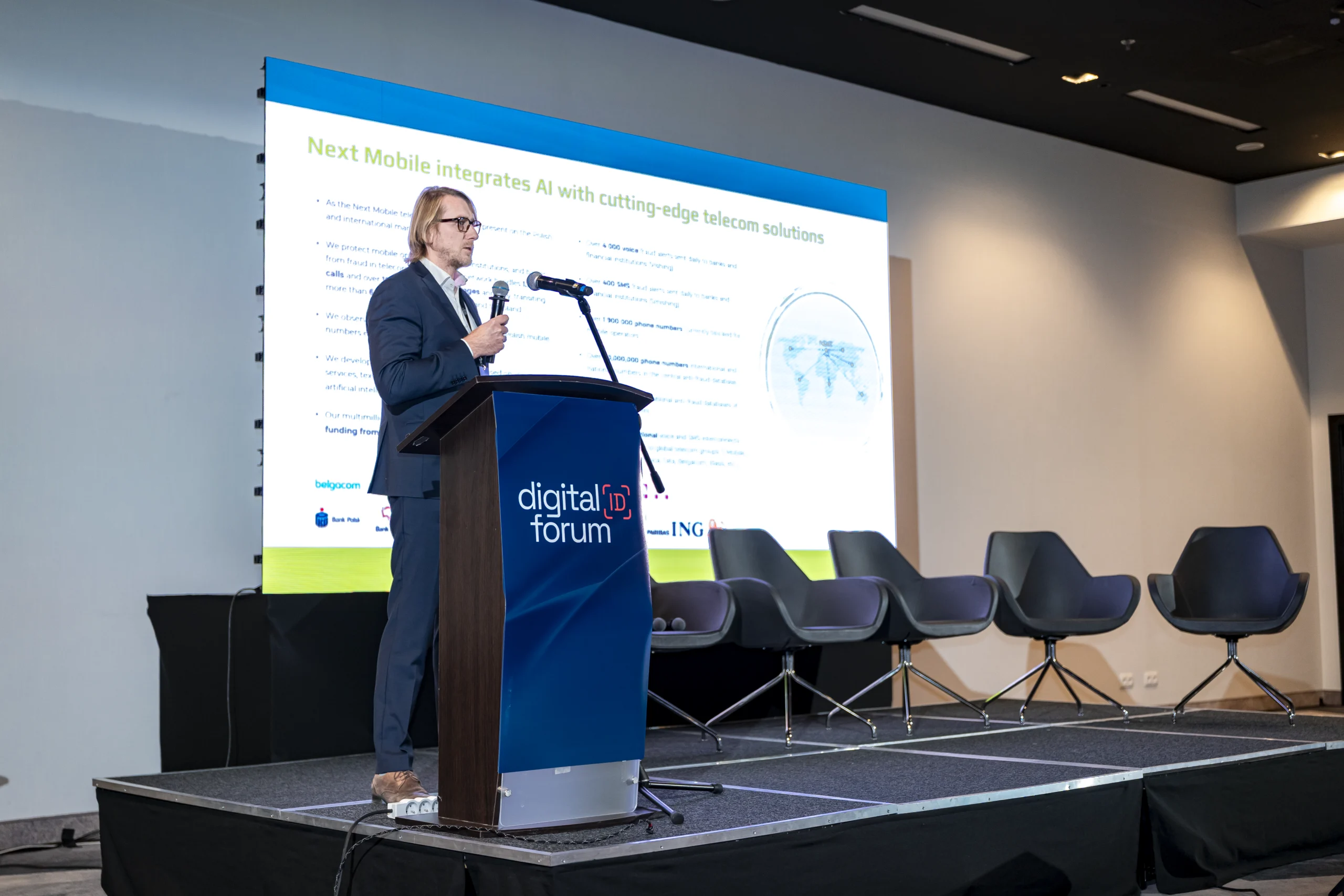
AI Security: Privacy, Manipulation and Model Robustness
The panel moderated by Prof. Tomasz Kajdanowicz brought together experts Sebastian Kondracki, Konrad Niklewicz, Marek Kędzier and Dr. Filip Zagórski. They discussed adversarial attacks, model poisoning and the need for certification frameworks ensuring transparency and resilience.

Dr. Paula Skrzypecka: Life Hacks for Navigating Regulations
Dr. Paula Skrzypecka (Creativa Legal) showed how organisations can turn compliance into a competitive advantage through education, internal communication and aligning processes with regulatory logic.
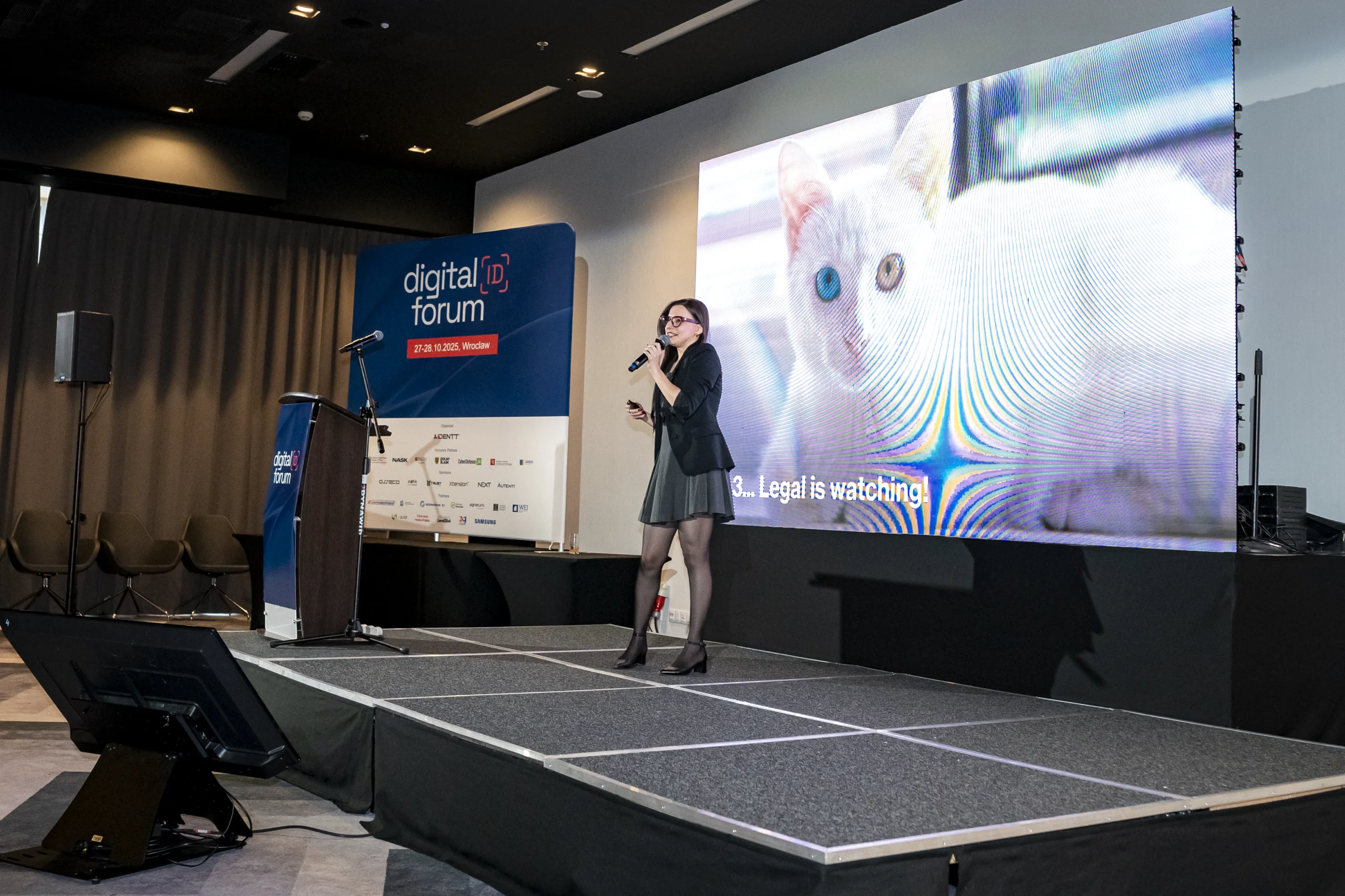
Dr. Lucjan Hanzlik: The Post-Quantum Challenge
Dr. Lucjan Hanzlik (CISPA) explained why quantum computing threatens current cryptography and why the transition to post-quantum standards must begin now.
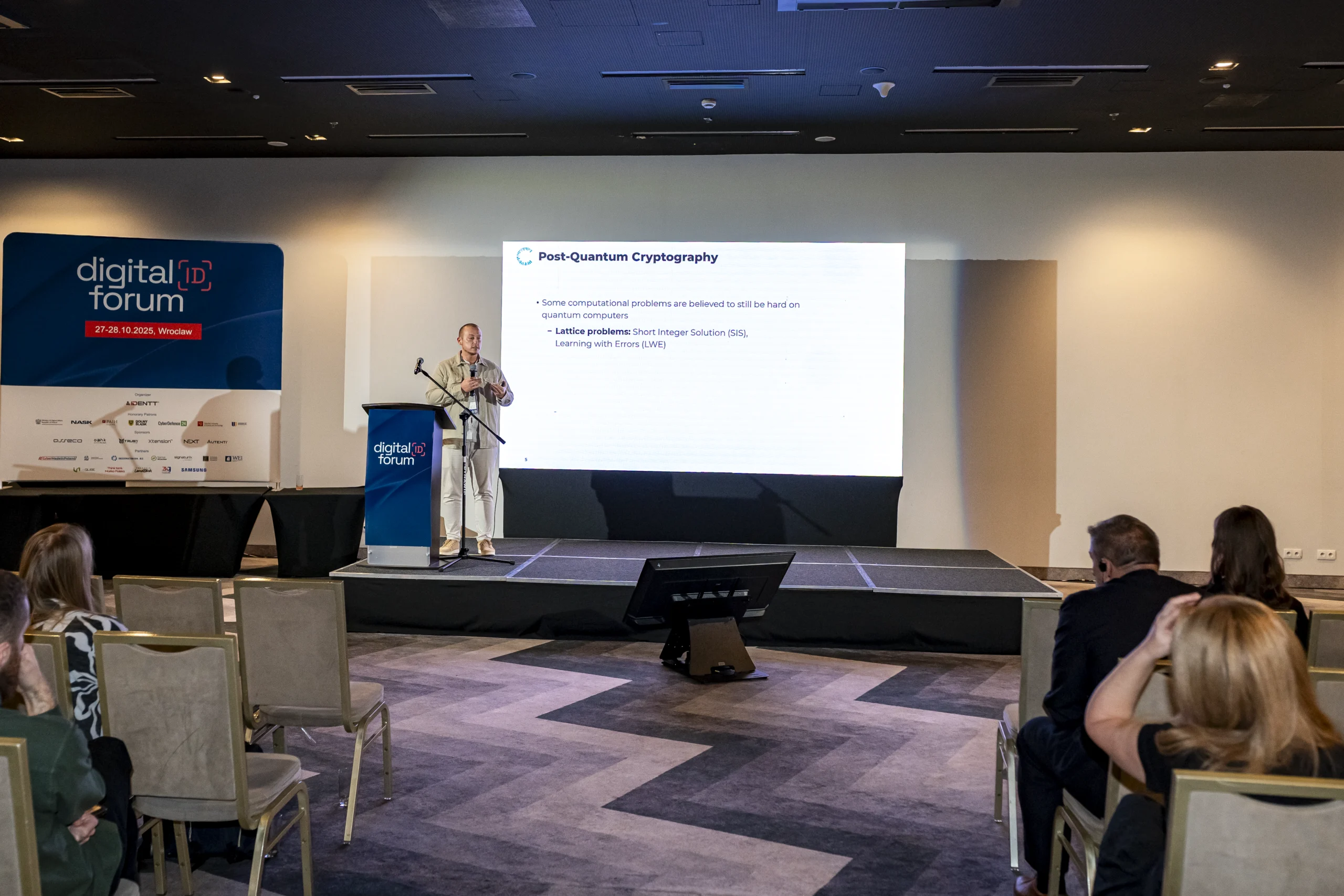
Jan Szajda: The Digital Identity of Tomorrow
Standing in for Aleksandra Nowak, Jan Szajda (IDENTT) outlined the key trends shaping Europe’s digital identity future: EUDI Wallet adoption, biometrics and AI-driven verification.
He emphasised three pillars: interoperability, transparency and trust — with Poland well positioned to remain a leader in innovation.
Closing Reflection
Day two of the Digital ID Forum 2025 showcased the future of digital identity and trust in Europe. From AI security to quantum-resistant cryptography, all insights pointed to a single truth: trust is the new foundation of the digital world.
The next edition of Digital ID Forum will take place in 2026. Follow us on LinkedIn to stay up to date with conference announcements and the latest trends in digital identity and cybersecurity.

Need a custom solution? We’re ready for it.
IDENTT specializes in crafting customized KYC solutions to perfectly match your unique requirements. Get the precise level of verification and compliance you need to enhance security and streamline your onboarding process.

